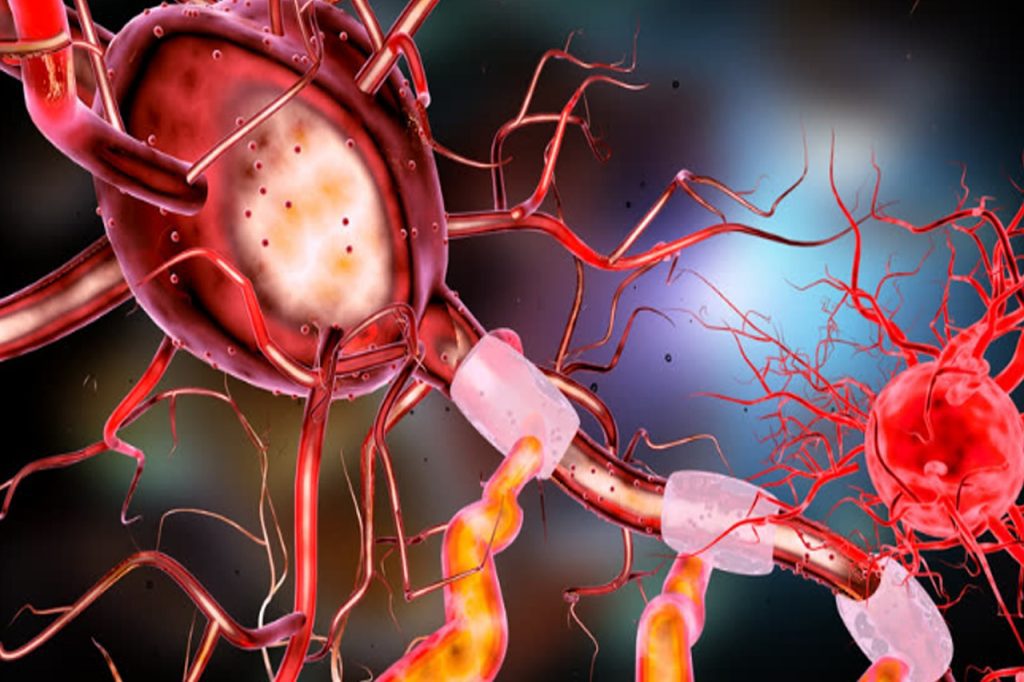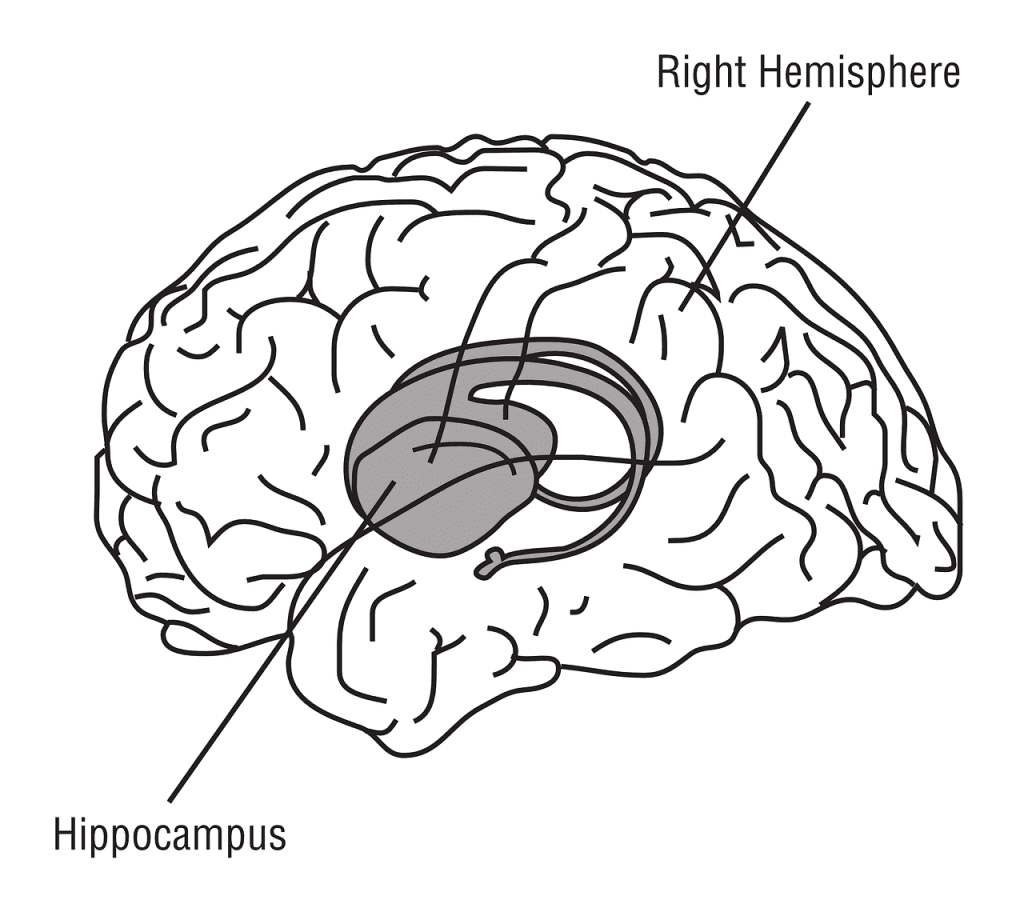Stress is a natural response of the body to perceived threats or challenges. It is a normal part of life, but fighting chronic stress, which can have extremely negative effects on the body and mind, is something we should all be striving to do. One of the ways stress affects the body is through the nervous system, which is the body’s system of communication, sending and receiving messages throughout the body. Now, I know what you’re saying to yourself. I’ve heard of the nervous system a lot, but what exactly is it? Don’t worry, I got your back.
The Nervous System and Chronic Stress

The nervous system is a complex network of nerves and cells that transmit signals between different parts of the body. It is responsible for coordinating and controlling the body’s functions, including movement, sensation, and cognition.
The nervous system is divided into two main parts: the central nervous system (CNS) and the peripheral nervous system (PNS). The CNS consists of the brain and spinal cord. It is responsible for processing and interpreting information from the body and the external environment. The PNS, on the other hand, is responsible for transmitting signals from the CNS to the rest of the body and vice versa.
The nervous system relies on a wide variety of cells to function properly. Neurons are the primary cells responsible for transmitting signals throughout the nervous system. They are specialised cells that can transmit electrical impulses, or action potentials, to other neurons or to muscles and glands. Supporting cells, such as glial cells, also play an important role in maintaining the health and function of neurons.
The nervous system also relies on a wide variety of neurotransmitters and other chemical signals to transmit information between cells. Neurotransmitters are chemicals that are released by neurons and bind to receptors on other neurons or cells, thereby transmitting signals.
A Healthy Nervous System Is Essential
The nervous system plays a critical role in maintaining the body’s overall health and well-being. It is responsible for coordinating the body’s movements, sensing the environment, and processing and interpreting information. It also plays an important role in regulating the body’s internal functions, including heart rate, blood pressure, and digestion.
The nervous system is a complex network of nerves and cells that transmit signals between different parts of the body. It is divided into two main parts: the central nervous system and the peripheral nervous system. It relies on a variety of cells and chemical signals to function properly. The nervous system also plays a critical role in maintaining the body’s overall health and well-being. Now that we have a better understanding of what the nervous system is, we can now discover why we need to look after it.
When a person is under stress, the nervous system is activated, releasing hormones such as adrenaline and cortisol. These hormones increase heart rate, blood pressure, and blood sugar levels, preparing the body for a “fight or flight” response.
In the short term, this response can be helpful, providing the energy and focus needed to deal with a stressful situation. However, when the stress response is activated repeatedly or for prolonged periods, it can have negative effects on the body.
Chronic stress can lead to the development of various physical and mental health conditions. Some examples are heart disease, obesity, depression, and anxiety. The continuous release of stress hormones can also weaken the immune system, making the body more susceptible to infections and illnesses.
No One Wants a Shrinking Hippocampus

Stress can also cause changes in the brain. For example, the shrinking of the hippocampus, a region of the brain that is important for memory and learning. Chronic stress can also increase the risk of developing neurodegenerative diseases such as Alzheimer’s.
In addition to these physical effects, stress can also have negative effects on mental health. Stress can cause feelings of anxiety and depression, and can also make existing mental health conditions worse.
To help manage the effects of stress on the nervous system, it is important to find healthy ways to cope with stress. This can include exercise, deep breathing, meditation, and talking to a therapist. It is also important to maintain a healthy diet, get enough sleep, and engage in activities that bring joy and relaxation.
Activities Don’t Always Need to Be Active
For some of you reading this, you’re thinking that activities means exercise. It can do but that doesn’t have to be the case. Exercise is a great way to relax to aid a healthy and balanced lifestyle, but there are other ways. Meditation, yoga, reading, and spending time in nature are other great examples.

Exercise is one of the best ways to relax and reduce stress. It releases endorphins, which are chemicals in the brain that make you feel good. Regular exercise can also improve your overall physical and mental health, helping you to feel more energised and less stressed. Some good options for exercise include walking, running, swimming, cycling, and weightlifting.
Meditation is another great way to relax and reduce stress. This ancient practice involves sitting quietly and focusing on your breath or a particular word or phrase. Meditation can help to clear your mind and reduce feelings of stress and anxiety. There are many different types of meditation, including mindfulness meditation, transcendental meditation, and yoga meditation.
Yoga is another form of meditation that combines physical postures with breathing exercises and meditation. It is a holistic practice that can help to relax the mind and body, reduce stress and anxiety, and improve overall well-being.
When All Else Fails, Read a Book
Reading is also a great way to relax and reduce stress. It is an easy and enjoyable way to escape from your daily worries and immerse yourself in a different world. Reading can also help to improve your cognitive function and vocabulary.
Spending time in nature is another great way to relax and reduce stress. Nature has a calming effect on the mind and body, and can help to reduce feelings of anxiety and depression. Activities such as hiking, camping, and gardening can help you to connect with nature and feel more relaxed.

So, there are many different activities that can help you relax and reduce stress, but it’s important to find one you enjoy. If you don’t fancy any of the ways I’ve mentioned above, try to think of others. After all, if walking around your neighbourhood listening to music helps you relax, then do that.
There’s no wrong way to relax if the end result is that you feel relaxed. So, whether it’s exercising, meditating, practising yoga, reading, spending time in nature, or walking round the block, each activity can have a positive impact on your overall well-being. Just remember to find the activities that work best for you and make them a regular part of your routine.
Working for a Chronic Stress-Free Life
In conclusion, stress is a natural response of the body to perceived threats or challenges. However, chronic stress has negative effects on the body and mind, especially in the nervous system. The continuous release of stress hormones can weaken the immune system. It can also cause physical and mental health conditions, and make existing mental health conditions worse. It is important to find healthy ways to cope with chronic stress to manage the effects of chronic stress.
Read More
- Boosting Your Immune System Means Living Your Best Life
- Drinking and Driving, and How to Avoid Stupidity
- The Negative Effects of Caffeine on Your Body and Mind
- How Maintaining a Healthy Mindset Improves Your Life
- How to Improve Your Life with a Great Morning Routine
Disclaimer: The information provided on Healthy Lifestyles for All is intended for general educational purposes only and should not be considered as medical advice. Please consult with your GP or other health professional before making any significant changes to your diet, exercise routine, or any other aspect of your lifestyle. We are not responsible for any adverse effects or consequences resulting from the use of the information provided on our blog.
Comments: I hope you enjoyed reading this post as much as I enjoyed writing it. If you liked it, please leave a comment. If you didn’t like it, disagree with something I have written (I’m okay with that), or think I got something wrong (that’s okay too), please leave a comment as well. We only truly learn from our mistakes, so I am happy to have mine pointed out.
Affiliate Links: Please also note that I may make a small amount of money if you buy one of the products I recommend in any of my blog posts. Rest assured that I have done my own due diligence, and only recommend products that have been tried and tested, and have extremely good feedback. Additionally, many of the products I recommend have 30 or 60-day money-back guarantees, so you can buy in the confidence that if a particular product is not right for you, you can get a refund.